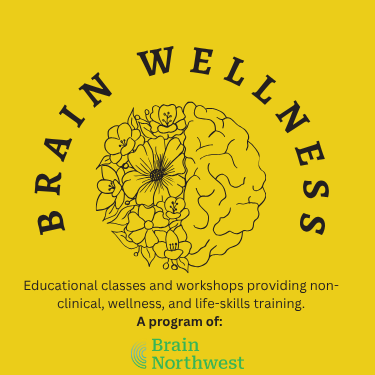When someone experiences a brain injury—whether from a concussion, stroke, accident, or illness—the aftermath is often invisible (Barnes, 2023). There are no casts, stitches, or scars for the world to see. Instead, the damage is internal, manifesting in cognitive struggles, fatigue, headaches, mood changes, and memory issues that can’t be measured on a simple scale.
And too often, survivors face not only their symptoms but something even more damaging: medical gaslighting.
What is Medical Gaslighting?
Medical gaslighting happens when a healthcare provider dismisses, minimizes, or questions a patient’s symptoms or experience. It’s when you’re told, “That’s not possible,” or “It’s just anxiety,” or “You’re overreacting.” (Shapiro, et al, 2024)
For brain injury survivors, this is unfortunately common. The subjective nature of brain injury symptoms—fatigue, dizziness, word-finding problems, mental fog—makes them ripe for dismissal. Many survivors are told their symptoms are psychological, exaggerated, or unrelated. Some are sent home from ER visits being told they’re “fine” or that it’s “just a mild concussion” and they’ll be better in a few days (Gabay, 2025). Others are pressured to return to work or school long before their brain is ready (2025).
The damage of this gaslighting runs deep—it delays care, erodes self-trust, and leaves people feeling isolated in a struggle no one seems to validate.
Why Does It Happen?
There are a few reasons medical gaslighting is so common in brain injury cases:
- The “Invisible” Injury: Without a visible wound or positive imaging (like MRI or CT scans), doctors may assume there’s no injury. But brain injuries often don’t show up on scans.
- Lack of Training: Many healthcare providers receive limited training on concussions, post-concussion syndrome, or mild traumatic brain injury (mTBI), leading to outdated beliefs that recovery is fast and symptoms are “all in your head.”
- Bias and Stereotypes: Gender bias, racial bias, and ageism play a role. Women, people of color, and younger patients report higher rates of being dismissed by medical providers.
- Over-reliance on Tests: If a test result looks normal, a patient’s experience is sometimes ignored. But brain function isn’t always easy to measure.
The Cost of Dismissal
When brain injury symptoms are downplayed, people lose time—time when appropriate treatment could help the brain heal. Untreated brain injuries can spiral into long-term issues like chronic headaches, cognitive dysfunction, mental health challenges, and even disability (Gabay, 2025).
The emotional impact of being gaslit is just as damaging. Survivors start doubting themselves, questioning if they’re exaggerating. Relationships suffer. Work and school become battlegrounds where people fight just to be heard and believed.
What Can Be Done?
1. Validate Your Experience
Your symptoms are real, even if a doctor dismisses them. Trust what your body and brain are telling you.
2. Find the Right Medical Team
Look for specialists in brain injury—neurologists, neuropsychologists, physical medicine and rehabilitation (PM&R) doctors, or functional medicine practitioners who understand invisible injuries.
3. Document Everything
Keep a daily log of symptoms, triggers, and how your condition impacts daily life. This record can help you advocate for yourself and provide evidence to new providers.
4. Educate Yourself
Learn about post-concussion syndrome, traumatic brain injuries, and neuroplasticity. Knowledge is power when advocating for care.
5. Seek Support
There are brain injury support groups—both in-person and online—full of people who understand what you’re going through.
Final Thoughts
Medical gaslighting in brain injury care is real, and it’s harmful. You are not imagining your symptoms. You deserve to be heard, respected, and treated with compassion.The journey after a brain injury is hard enough. Dismissal and disbelief shouldn’t be part of it. Keep advocating for yourself. Keep looking for the right team. And know—loud and clear—you are not alone.
References:
Barnes, E. (2023). Trust, distrust, and ‘medical gaslighting’. The philosophical quarterly
Shapiro, D., & Hayburn, A. (2024). Medical gaslighting as a mechanism for medical trauma: case studies and analysis. Current Psychology
Gabay, G. (2025). Dismissive Medicine and Gaslighting of Patients by Physicians-A Bioethics Lens. Patient Education and Counseling


